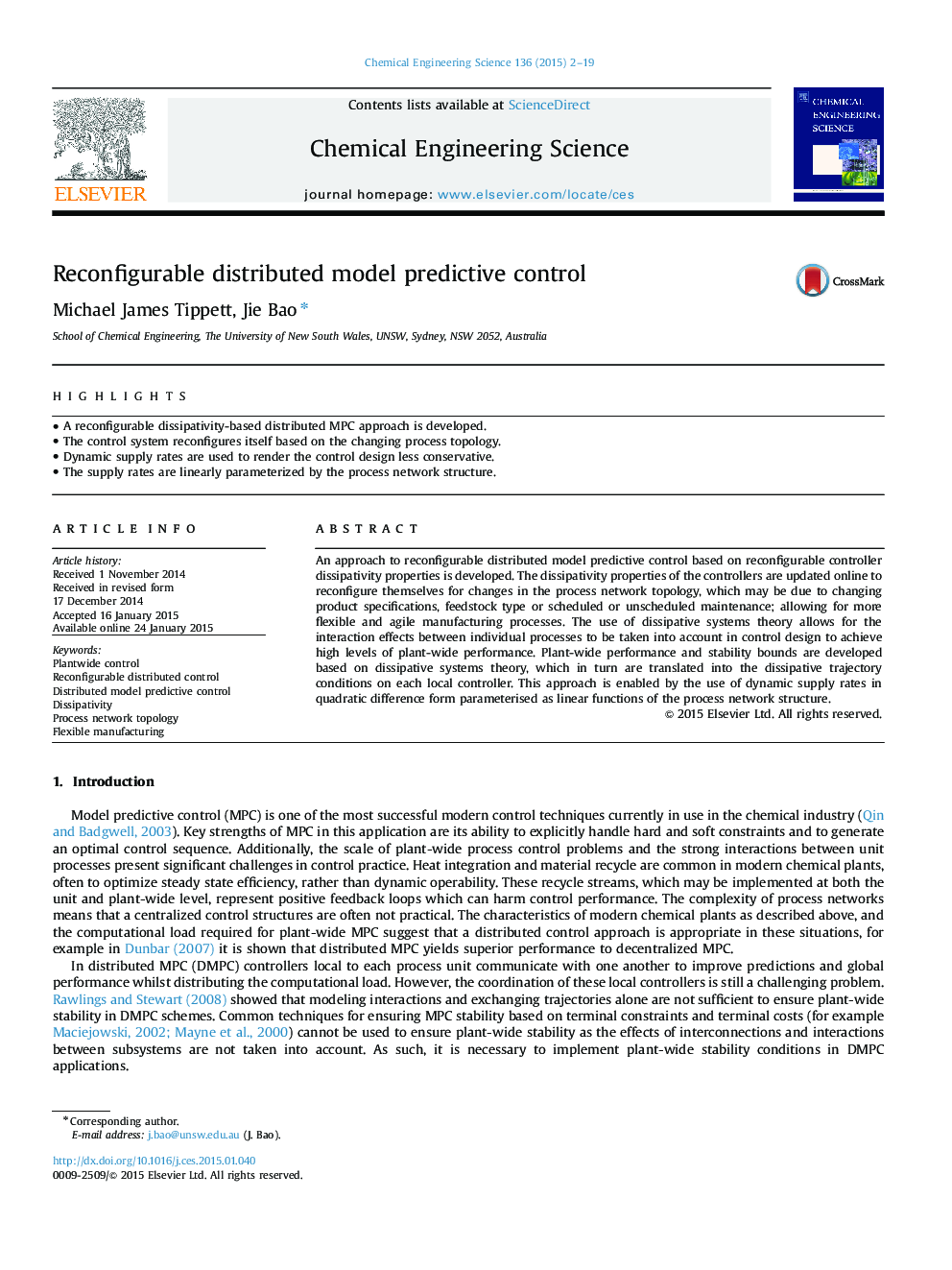| Article ID | Journal | Published Year | Pages | File Type |
|---|---|---|---|---|
| 154562 | Chemical Engineering Science | 2015 | 18 Pages |
•A reconfigurable dissipativity-based distributed MPC approach is developed.•The control system reconfigures itself based on the changing process topology.•Dynamic supply rates are used to render the control design less conservative.•The supply rates are linearly parameterized by the process network structure.
An approach to reconfigurable distributed model predictive control based on reconfigurable controller dissipativity properties is developed. The dissipativity properties of the controllers are updated online to reconfigure themselves for changes in the process network topology, which may be due to changing product specifications, feedstock type or scheduled or unscheduled maintenance; allowing for more flexible and agile manufacturing processes. The use of dissipative systems theory allows for the interaction effects between individual processes to be taken into account in control design to achieve high levels of plant-wide performance. Plant-wide performance and stability bounds are developed based on dissipative systems theory, which in turn are translated into the dissipative trajectory conditions on each local controller. This approach is enabled by the use of dynamic supply rates in quadratic difference form parameterised as linear functions of the process network structure.
